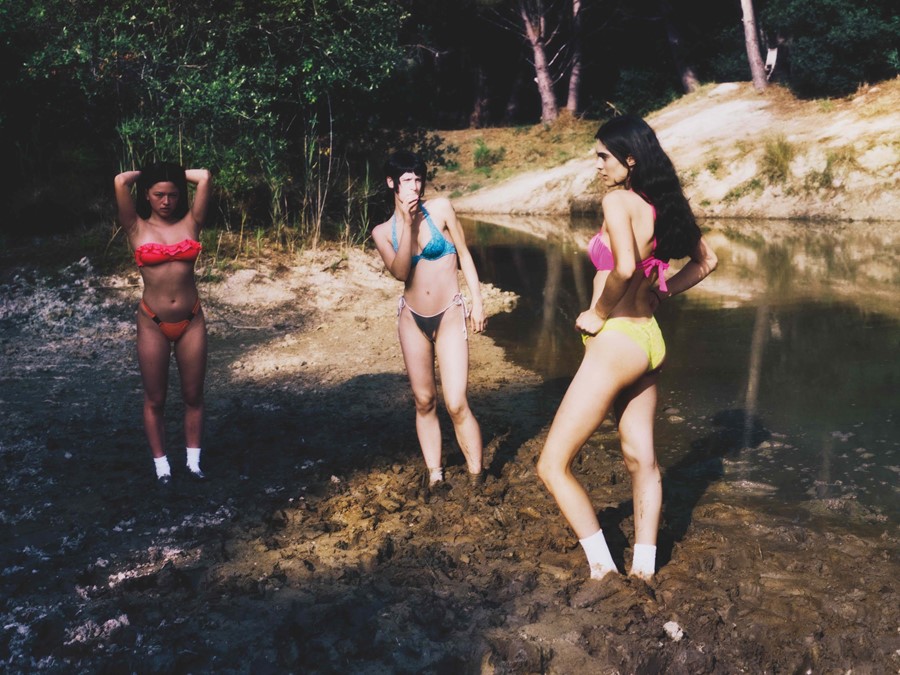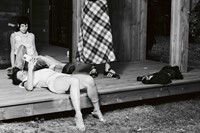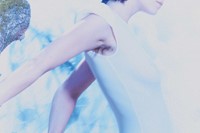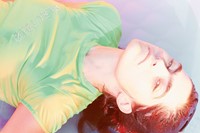Stylist Georgia Pendlebury and photographer Arnaud Lajeunie discuss MUD 5, the latest issue of their cult photography publication
Once a year for five years now, stylist Georgia Pendlebury and photographer Arnaud Lajeunie have reconvened in a small town in Europe where, for one week, they bring together a group of girls and document the experience of strangers living together. The resulting images form the content of their now-cult publication, MUD, the fifth volume of which has now been released via Antenne Books.
“The core formula remains the same,” explains Lajeunie of their unique process, “three or four girls, in a house somewhere, for a little week.” If there is a loose plan of the images they hope to capture, a large margin is always left for “reality to destroy it.” “The truth is: as we are influenced by the girls, and their daily desires, it all changes and transforms for the best,” says Pendlebury of the unbridled energy that emerges between the girls and now defines the intimate project.
Below, AnOther caught up Georgia Pendlebury and Arnaud Lajeunie to discuss what they’ve learnt after five years of making MUD together and where to next.
MR: Why did you choose to shoot at Soulac?
Arnaud Lajeunie: Each chapter of MUD is based on a specific place, usually a village or a small town. After Huez and its mountains, we were looking for a new typology of landscape. During a dinner with a friend of ours, he proposed his family house in Soulac, and it just felt right. The sea, the dunes, the long pine trees.
Georgia Pendlebury: As Arnaud said, the formula remains the same. The character of the house and its surrounding landscape are the core of each issue. So, each year we make sure the feeling is different: the sky, light, nature. For MUD 5, we felt the need for the images to wash out – we saw pastels, and felt dry pines, white sand.
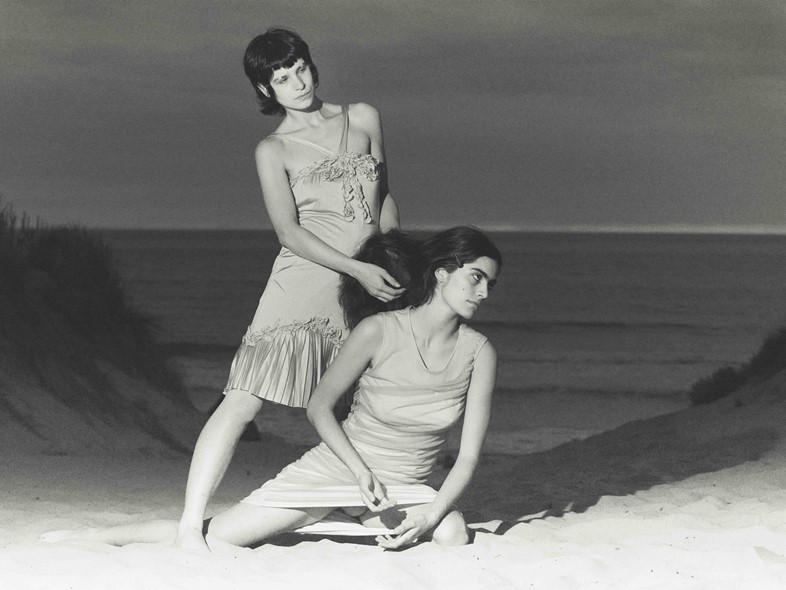
MR: What made MUD 5 singular in comparison to the other locations you have shot at?
AL: I don’t see specific singularities. Each volume has a certain tone, almost a hue, but the consistency of the core elements prevents them from being dramatically different. That being said, there is a constant evolution. We always try to build images that aren’t exactly like what we did in the previous volumes.
GP: There is no element of comparison. Each year is a restart, and we rarely look, or even think of, the last issues. It’s as if MUD is a part of us, so it’s another year, another chapter. Naturally we evolve and I’m sure this translates in the images.
MR: What did you each personally learn from MUD 5?
AL: I would say it relates to this very peculiar feeling of huis-clos (behind closed doors) within a mini ‘fake’ community. We always plan a lot in advance – recces and general images we would like to create. And then we gladly let this carefully constructed framework explode as the girls bring an energy that we could not have predicted.
For example, one of my favourite images of this volume is of Fanny with the water. After crawling on a dusty ground for one image, she wanted to rinse (it was also truly hot this day). She grabbed the garden hose, and I just keep clicking. Never would I have imagined or preconceived that image.
GP: Often, what we plan ends up being killed and replaced by a random stop on the side of a road, a nap time, a surprise … this is indeed the real thing that we have, sometimes painfully, learned: to let go and embrace.
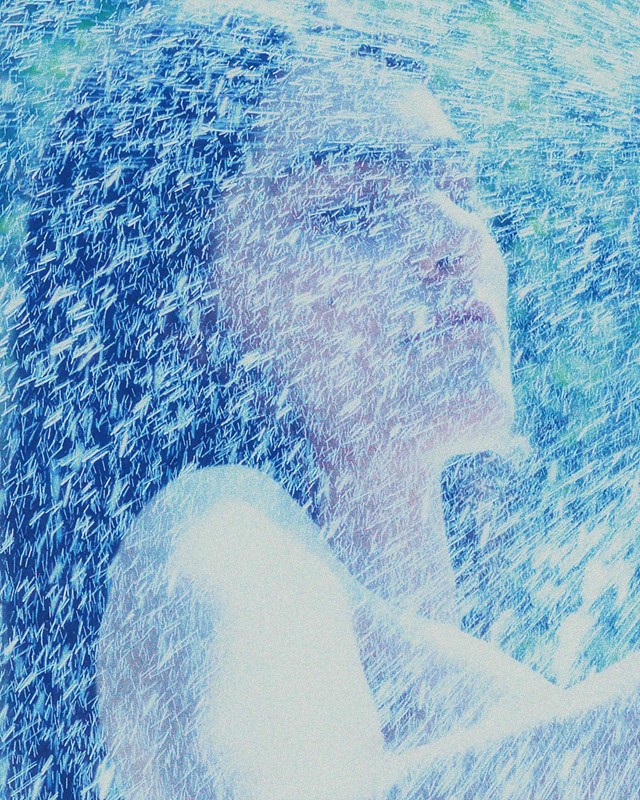
MR: It’s been five years since the first volume. With hindsight, has MUD panned out as you intended?
AL: What keeps us doing this is the ever-evolving aspect of it. The fundamentals remain the same. But with these ingredients, the combinations are limitless. We never really expected anything.
GP: We started MUD with no other intention but to make images outside of the usual fashion frame. We ended up shooting 60 images and decided to make a book out of it. It fulfilled us because we were ‘given’ moments by the girls we scouted. It felt like an exchange and, maybe for the first time on my end, it felt like a reason to do images. From that day, we decided to make this a yearly appointment. And we are hoping to share this with as many people as possible.
I’ve learned to be softer with my visual expectations, to make space for surprises, to bring back the human aspect within photography. To be willing to actually meet the person I’m shooting. It makes me feel proud and full.
MR: What are the challenges?
AL: In order for this feeling of intimacy to arise, especially in the artificial setup, we need to keep the team minimal. So sometimes I am as much a driver, cook, nurse as I am a photographer.
It’s a physically draining project. The week after we are always dead (I almost crashed the van on the way back from MUD 2 …). We constantly have to think of the images, but also all of the rest. We can’t have a proper production as it would prevent an energy from growing between the girls who don’t know each other before the shoot. It’s the moment where the lines between staged situations and spontaneous reaction start to fade.
GP: I agree with Arnaud. It’s a very tiring yet fulfilling project.
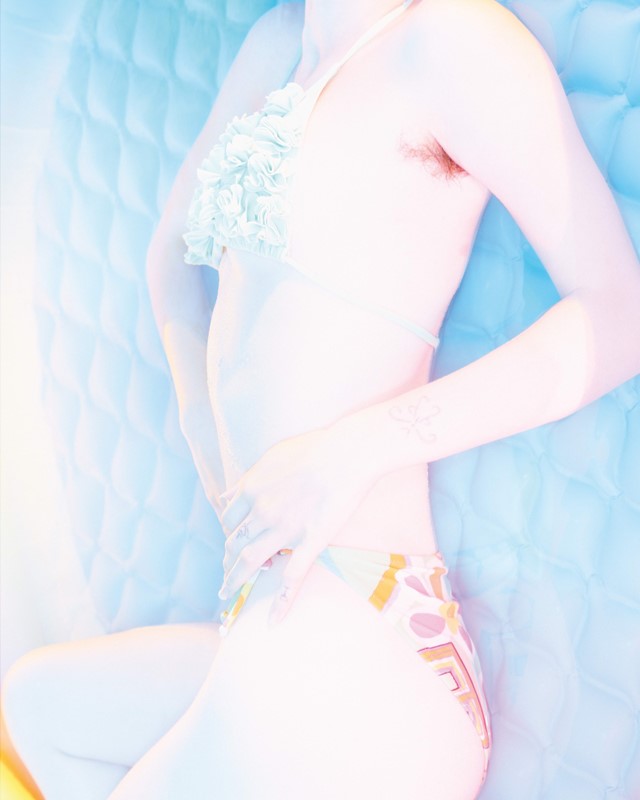
MR: Where to next?
AL: Actually, the main question is more ‘who’. We are working on a very exciting casting – the location will follow, but again, somewhere in Europe.
GP: Exactly! It’s about the ‘who’.
MUD 5 by Georgia Pendlebury and Arnaud Lajeunieis out now via Antenne Books. Select images are show at Permanent Files, 4 place des Petits Pères, 75002 Paris until September 22.
